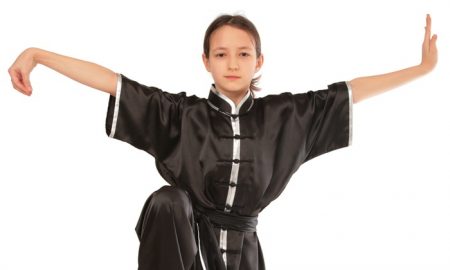Ken Low Shaolin Kung Fu Institute: $35 for One or $69 for Two Months of Kung Fu Classes (Up to 65% Off)
Today’s Groupon Vancouver Daily Deal of the Day: Ken Low Shaolin Kung Fu Institute: $35 for One or $69 for Two Months of Kung Fu Classes (Up to 65% Off)
Buy now from only $
35
Value $100
Discount 65% Off
Highlights
A ninth-degree master leads a kung fu studio that teaches students about self-defence, self-respect, and Chinese culture
About This Deal
Choose Between Two Options:
- $35 for one month of kung fu classes ($100 value)
- $69 for two months of kung fu classes ($200 value)
- See the schedule.
This is a limited time offer while quantities last so don’t miss out!
Click here to buy now or for more info about the deal.
Fine Print
Promotional value expires 120 days after purchase. Amount paid never expires. Limit 1 per person, may buy 1 additional as gift. Valid only for option purchased. Limit 1 per visit. 24-hr cancellation notice required. Reservation required. Must be 18 or older. Must sign waiver. May be repurchased every 30 days. Merchant is solely responsible to purchasers for the care and quality of the advertised goods and services. Learn about Strike-Through Pricing and Savings
Ken Low Shaolin Kung Fu Institute
http://kenlowkungfu.ca/
3435 Kingsway, Vancouver, BC V5R 5L3
The Cardiovascular System: How Exercise Makes it Hum
Exercise can be a little tough when you start out. Take inspiration during your next workout by understanding the good it’s doing inside with Groupon’s whirlwind tour of the cardiovascular system.
The average person’s heart beats 100,000 times a day, pushing 10 pints of blood all the way to the tips of the toes and back through 60,000 miles of vessels. Along this route, that blood stops to do a great many errands. The heart pumps blood to the lungs to collect oxygen before sending it through the rest of the body via arteries, arterioles, and capillaries. Once the tissues have absorbed the oxygen and nutrients they need, they send the waste-filled blood back to the heart through the veins to be reoxygenated and start the process again.
Every time our heart beats, what we really feel is the opening and closing of valves that push the blood through the heart’s four chambers and out to the body. When we exercise or get scared by a shrub that looked like a huge dog for a second, our brains instruct the heart to beat harder to supply the body with what it needs to fight or run. As exercise enhances the muscles over time, it also improves the function of the entire cardiovascular system.
This happens in several ways. Although exercise makes the heart work harder in the short term, this ultimately causes the body to adapt, easing the heart’s everyday tasks. In response to muscles’ demand for more oxygen and compliments, the body actually sprouts new capillaries, while prompting existing capillaries to open wider. These increased channels help lower blood pressure, since blood now encounters less resistance on its way to the extremities. The heart also becomes better at oxygenating the tissues—red blood cells increase their numbers during intense exercise.
With its insistent knocking in our ribcage, you may think the heart’s role in all this would be hard to ignore. But the earliest anatomists didn’t hear its call so clearly. Galen and Hippocrates believed the liver produced blood and spread it through the body in a centrifugal manner; meanwhile, the veins contained air, which the lungs pushed to the tissues. They also assumed this was an open-ended system, with the blood and air gradually dissipating when it reached the ends of veins and arteries—a view that would hold for another 1,500 years.
Click here to buy now or for more information about the deal. Don’t miss out!

